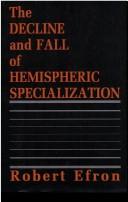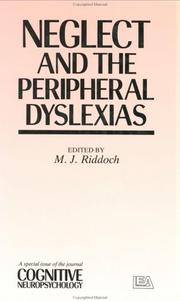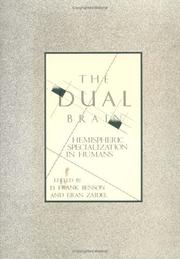| Listing 1 - 10 of 18 | << page >> |
Sort by
|
Book
Abstract | Keywords | Export | Availability | Bookmark
 Loading...
Loading...Choose an application
- Reference Manager
- EndNote
- RefWorks (Direct export to RefWorks)
Metaphor has been an issue of intense research and debate for decades (see, for example [1]). Researchers in various disciplines, including linguistics, psychology, computer science, education, and philosophy have developed a variety of theories, and much progress has been made [2]. For one, metaphor is no longer considered a rhetorical flourish that is found mainly in literary texts. Rather, linguists have shown that metaphor is a pervasive phenomenon in everyday language, a major force in the development of new word meanings, and the source of at least some grammatical function words [3]. Indeed, one of the most influential theories of metaphor involves the suggestion that the frequency of metaphoric language results because cross-domain mappings are a major determinant in the organization of semantic memory, as cognitive and neural resources for dealing with concrete domains are recruited for the conceptualization of more abstract ones [4]. Researchers in cognitive neuroscience have explored whether particular kinds of brain damage are associated with metaphor production and comprehension deficits, and whether similar brain regions are recruited when healthy adults understand the literal and metaphorical meanings of the same words (see [5] for a review). Whereas early research on this topic focused on the issue of the role of hemispheric asymmetry in the comprehension and production of metaphors [6], in recent years cognitive neuroscientists have argued that metaphor is not a monolithic category, and that metaphor processing varies as a function of numerous factors, including the novelty or conventionality of a particular metaphoric expression, its part of speech, and the extent of contextual support for the metaphoric meaning (see, e.g., [7], [8], [9]). Moreover, recent developments in cognitive neuroscience point to a sensorimotor basis for many concrete concepts, and raise the issue of whether these mechanisms are ever recruited to process more abstract concepts [10]. This Frontiers Research Topic brings together contributions from researchers in cognitive neuroscience whose work involves the study of metaphor in language and thought in order to promote the development of the neuroscientific investigation of metaphor. Adopting an interdisciplinary perspective, it synthesizes current findings on the cognitive neuroscience of metaphor, provides a forum for voicing novel perspectives, and promotes avenues for new research on the metaphorical brain.
figurative language comprehension --- Schizophrenia --- hemispheric specialization --- embodiment --- right hemisphere damage --- Alzheimer's disease --- Executive Function --- autism
Book
Abstract | Keywords | Export | Availability | Bookmark
 Loading...
Loading...Choose an application
- Reference Manager
- EndNote
- RefWorks (Direct export to RefWorks)
Metaphor has been an issue of intense research and debate for decades (see, for example [1]). Researchers in various disciplines, including linguistics, psychology, computer science, education, and philosophy have developed a variety of theories, and much progress has been made [2]. For one, metaphor is no longer considered a rhetorical flourish that is found mainly in literary texts. Rather, linguists have shown that metaphor is a pervasive phenomenon in everyday language, a major force in the development of new word meanings, and the source of at least some grammatical function words [3]. Indeed, one of the most influential theories of metaphor involves the suggestion that the frequency of metaphoric language results because cross-domain mappings are a major determinant in the organization of semantic memory, as cognitive and neural resources for dealing with concrete domains are recruited for the conceptualization of more abstract ones [4]. Researchers in cognitive neuroscience have explored whether particular kinds of brain damage are associated with metaphor production and comprehension deficits, and whether similar brain regions are recruited when healthy adults understand the literal and metaphorical meanings of the same words (see [5] for a review). Whereas early research on this topic focused on the issue of the role of hemispheric asymmetry in the comprehension and production of metaphors [6], in recent years cognitive neuroscientists have argued that metaphor is not a monolithic category, and that metaphor processing varies as a function of numerous factors, including the novelty or conventionality of a particular metaphoric expression, its part of speech, and the extent of contextual support for the metaphoric meaning (see, e.g., [7], [8], [9]). Moreover, recent developments in cognitive neuroscience point to a sensorimotor basis for many concrete concepts, and raise the issue of whether these mechanisms are ever recruited to process more abstract concepts [10]. This Frontiers Research Topic brings together contributions from researchers in cognitive neuroscience whose work involves the study of metaphor in language and thought in order to promote the development of the neuroscientific investigation of metaphor. Adopting an interdisciplinary perspective, it synthesizes current findings on the cognitive neuroscience of metaphor, provides a forum for voicing novel perspectives, and promotes avenues for new research on the metaphorical brain.
figurative language comprehension --- Schizophrenia --- hemispheric specialization --- embodiment --- right hemisphere damage --- Alzheimer's disease --- Executive Function --- autism
Book
Abstract | Keywords | Export | Availability | Bookmark
 Loading...
Loading...Choose an application
- Reference Manager
- EndNote
- RefWorks (Direct export to RefWorks)
Metaphor has been an issue of intense research and debate for decades (see, for example [1]). Researchers in various disciplines, including linguistics, psychology, computer science, education, and philosophy have developed a variety of theories, and much progress has been made [2]. For one, metaphor is no longer considered a rhetorical flourish that is found mainly in literary texts. Rather, linguists have shown that metaphor is a pervasive phenomenon in everyday language, a major force in the development of new word meanings, and the source of at least some grammatical function words [3]. Indeed, one of the most influential theories of metaphor involves the suggestion that the frequency of metaphoric language results because cross-domain mappings are a major determinant in the organization of semantic memory, as cognitive and neural resources for dealing with concrete domains are recruited for the conceptualization of more abstract ones [4]. Researchers in cognitive neuroscience have explored whether particular kinds of brain damage are associated with metaphor production and comprehension deficits, and whether similar brain regions are recruited when healthy adults understand the literal and metaphorical meanings of the same words (see [5] for a review). Whereas early research on this topic focused on the issue of the role of hemispheric asymmetry in the comprehension and production of metaphors [6], in recent years cognitive neuroscientists have argued that metaphor is not a monolithic category, and that metaphor processing varies as a function of numerous factors, including the novelty or conventionality of a particular metaphoric expression, its part of speech, and the extent of contextual support for the metaphoric meaning (see, e.g., [7], [8], [9]). Moreover, recent developments in cognitive neuroscience point to a sensorimotor basis for many concrete concepts, and raise the issue of whether these mechanisms are ever recruited to process more abstract concepts [10]. This Frontiers Research Topic brings together contributions from researchers in cognitive neuroscience whose work involves the study of metaphor in language and thought in order to promote the development of the neuroscientific investigation of metaphor. Adopting an interdisciplinary perspective, it synthesizes current findings on the cognitive neuroscience of metaphor, provides a forum for voicing novel perspectives, and promotes avenues for new research on the metaphorical brain.
figurative language comprehension --- Schizophrenia --- hemispheric specialization --- embodiment --- right hemisphere damage --- Alzheimer's disease --- Executive Function --- autism --- figurative language comprehension --- Schizophrenia --- hemispheric specialization --- embodiment --- right hemisphere damage --- Alzheimer's disease --- Executive Function --- autism
Book
ISBN: 0262071010 Year: 1987 Publisher: Cambridge (Mass.) MIT press
Abstract | Keywords | Export | Availability | Bookmark
 Loading...
Loading...Choose an application
- Reference Manager
- EndNote
- RefWorks (Direct export to RefWorks)
Neuropathology --- Dominance, Cerebral. --- 612.8 --- Nature --- -Hemispheric Specialization --- Cerebral Dominance --- Dominances, Cerebral --- Specialization, Hemispheric --- Zenuwstelsel. Zintuigen. Motorische neurowetenschappen --- Effect of human beings on --- Brain --- Cerebral dominance. --- Diseases --- Localization of functions. --- Causes and theories of causation. --- -Zenuwstelsel. Zintuigen. Motorische neurowetenschappen --- Cerebral dominance --- Dominance, Cerebral --- Hemispheric Specialization --- Aetiology --- Etiology --- Pathology --- Functional asymmetry (Brain) --- Hemispheric dominance (Brain) --- Lateralization (Brain) --- Left and right brain --- Right and left brain --- Cerebral hemispheres --- Dual-brain psychology --- Laterality --- Whole brain learning --- Brain function localization --- Cerebral localization --- Localization of cerebral functions --- Neurophysiology --- Phrenology --- Localization of functions --- Causes and theories of causation --- Functional localization

ISBN: 0805807160 Year: 1990 Volume: 1989 Publisher: Hillsdale Erlbaum
Abstract | Keywords | Export | Availability | Bookmark
 Loading...
Loading...Choose an application
- Reference Manager
- EndNote
- RefWorks (Direct export to RefWorks)
Cerebral dominance --- Cognitive science --- Dominance, Cerebral --- Dominance cérébrale --- Sciences cognitives --- Dominance, Cerebral. --- Science --- Philosophy of mind --- Functional asymmetry (Brain) --- Hemispheric dominance (Brain) --- Lateralization (Brain) --- Left and right brain --- Right and left brain --- Cerebral hemispheres --- Dual-brain psychology --- Laterality --- Whole brain learning --- Hemispheric Specialization --- Cerebral Dominance --- Dominances, Cerebral --- Specialization, Hemispheric --- Cerebral dominance. --- Cognitive science. --- Dominance cérébrale

ISBN: 0863771629 Year: 1991 Publisher: Hove Erlbaum
Abstract | Keywords | Export | Availability | Bookmark
 Loading...
Loading...Choose an application
- Reference Manager
- EndNote
- RefWorks (Direct export to RefWorks)
Attention --- Dominance, Cerebral --- Dyslexia, Acquired --- Pattern Recognition, Visual --- Reading --- Dyslexia --- Alexia --- Reading disability --- Dyslexie --- Alexie --- Lecture, Difficultés en --- psychology --- Attention. --- Dominance, Cerebral. --- Pattern Recognition, Visual. --- Reading. --- #KVHB:Dyslexie --- Readings --- Literacy --- Recognition, Visual Pattern --- Visual Pattern Recognition --- Hemispheric Specialization --- Cerebral Dominance --- Dominances, Cerebral --- Specialization, Hemispheric --- Concentration --- Attentions --- Concentrations --- Executive Function --- psychology. --- Lecture, Difficultés en --- Focus of Attention --- Attention Focus --- Social Attention --- Attention, Social --- Attentions, Social

ISBN: 3540971017 Year: 1990 Publisher: Berlin Springer
Abstract | Keywords | Export | Availability | Bookmark
 Loading...
Loading...Choose an application
- Reference Manager
- EndNote
- RefWorks (Direct export to RefWorks)
Brain --- Dominance, Cerebral. --- Language Disorders. --- Language. --- #SBIB:309H517 --- Languages --- Acquired Language Disorders --- Language Disorders, Acquired --- Acquired Language Disorder --- Language Disorder --- Language Disorder, Acquired --- Speech Disorders --- Verbal Behavior --- Verbal Learning --- Hemispheric Specialization --- Cerebral Dominance --- Dominances, Cerebral --- Specialization, Hemispheric --- physiology. --- Verbale communicatie: sociale psychologie van de taal en de interactie, psycholinguistiek --- BRAIN --- Dominance --- Language disorders. --- physiology --- cerebral --- cerebral. --- Physiology. --- Cerebral. --- Dialect --- Dialects --- Dominance, Cerebral --- Language Disorders --- Language
Book
ISBN: 0716716666 0716716674 Year: 1985 Publisher: New York (N.Y.): Freeman
Abstract | Keywords | Export | Availability | Bookmark
 Loading...
Loading...Choose an application
- Reference Manager
- EndNote
- RefWorks (Direct export to RefWorks)
Brain --- Cerebral dominance --- Left and right (Psychology) --- Dominance, Cerebral --- 159.95 --- 612.8 --- Laterality --- Psychology --- Functional asymmetry (Brain) --- Hemispheric dominance (Brain) --- Lateralization (Brain) --- Left and right brain --- Right and left brain --- Cerebral hemispheres --- Dual-brain psychology --- Whole brain learning --- 159.95 Geestelijke functies --- Geestelijke functies --- Hemispheric Specialization --- Cerebral Dominance --- Dominances, Cerebral --- Specialization, Hemispheric --- Brain function localization --- Cerebral localization --- Localization of cerebral functions --- Neurophysiology --- Phrenology --- Localization of functions --- physiology --- Zenuwstelsel. Zintuigen. Motorische neurowetenschappen --- Functional localization --- Physiology of nerves and sense organs

ISBN: 0898626439 Year: 1985 Publisher: New York
Abstract | Keywords | Export | Availability | Bookmark
 Loading...
Loading...Choose an application
- Reference Manager
- EndNote
- RefWorks (Direct export to RefWorks)
Brain --- Cerebral dominance --- Split brain --- Dominance, Cerebral --- Functional Laterality --- Bisected brain --- Brain, Split --- Brain bisection --- Commissurotomy --- Cerebral hemispheres --- Functional asymmetry (Brain) --- Hemispheric dominance (Brain) --- Lateralization (Brain) --- Left and right brain --- Right and left brain --- Dual-brain psychology --- Laterality --- Whole brain learning --- Ambidexterity --- Behavioral Laterality --- Handedness --- Laterality of Motor Control --- Mirror Writing --- Laterality, Behavioral --- Laterality, Functional --- Mirror Writings --- Motor Control Laterality --- Writing, Mirror --- Writings, Mirror --- Split-Brain Procedure --- Hemispheric Specialization --- Cerebral Dominance --- Dominances, Cerebral --- Specialization, Hemispheric --- Brain function localization --- Cerebral localization --- Localization of cerebral functions --- Neurophysiology --- Phrenology --- Localization of functions --- physiology --- Surgery --- Functional localization --- Physiology of nerves and sense organs

ISBN: 0716723735 Year: 1993 Publisher: New York Freeman
Abstract | Keywords | Export | Availability | Bookmark
 Loading...
Loading...Choose an application
- Reference Manager
- EndNote
- RefWorks (Direct export to RefWorks)
Brain --- Cerebral dominance --- Left and right (Psychology) --- Dominance, Cerebral --- Functional Laterality --- 612.8 --- Laterality --- Psychology --- Functional asymmetry (Brain) --- Hemispheric dominance (Brain) --- Lateralization (Brain) --- Left and right brain --- Right and left brain --- Cerebral hemispheres --- Dual-brain psychology --- Whole brain learning --- Brain function localization --- Cerebral localization --- Localization of cerebral functions --- Neurophysiology --- Phrenology --- Ambidexterity --- Behavioral Laterality --- Handedness --- Laterality of Motor Control --- Mirror Writing --- Laterality, Behavioral --- Laterality, Functional --- Mirror Writings --- Motor Control Laterality --- Writing, Mirror --- Writings, Mirror --- Split-Brain Procedure --- Hemispheric Specialization --- Cerebral Dominance --- Dominances, Cerebral --- Specialization, Hemispheric --- Localization of functions --- physiology --- Zenuwstelsel. Zintuigen. Motorische neurowetenschappen --- Functional localization --- Physiology of nerves and sense organs
| Listing 1 - 10 of 18 | << page >> |
Sort by
|

 Search
Search Feedback
Feedback About UniCat
About UniCat  Help
Help News
News